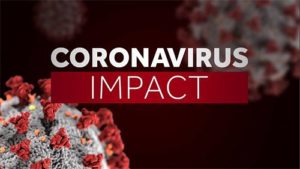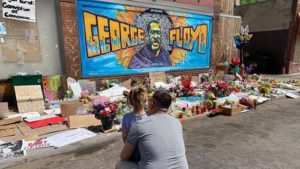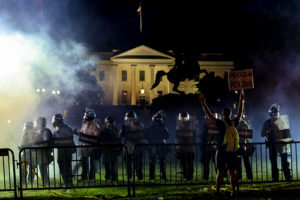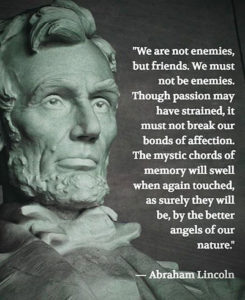 A particularly challenging time in our nation’s history got even more challenging over the last week. The coronavirus pandemic had already cost over 100,000 of our fellow citizens their very lives. Our economy went from perhaps the strongest ever, to teetering on the edge. Our healthcare workers went from focusing 100% of their attention on their patients’ well-being, to having to be concerned about their own survival as well as their patients’. And our nation’s children went from routinely going to school every day, to staying at home, and for those whose year it was to graduate, having to do so virtually.
A particularly challenging time in our nation’s history got even more challenging over the last week. The coronavirus pandemic had already cost over 100,000 of our fellow citizens their very lives. Our economy went from perhaps the strongest ever, to teetering on the edge. Our healthcare workers went from focusing 100% of their attention on their patients’ well-being, to having to be concerned about their own survival as well as their patients’. And our nation’s children went from routinely going to school every day, to staying at home, and for those whose year it was to graduate, having to do so virtually.
 And if that wasn’t bad enough, last week a Minneapolis police officer knelt on the neck of an unarmed African-American man named George Floyd, for over eight minutes, as the unarmed man’s life slowly and excruciatingly ended, with all the world watching. Condemnation of the officer’s action has been universal. There’s no excuse for what this officer did. He was fired almost immediately, as were the three officers with him who didn’t stop this homicide. And he, and probably they, will be criminally prosecuted for this horrific act.
And if that wasn’t bad enough, last week a Minneapolis police officer knelt on the neck of an unarmed African-American man named George Floyd, for over eight minutes, as the unarmed man’s life slowly and excruciatingly ended, with all the world watching. Condemnation of the officer’s action has been universal. There’s no excuse for what this officer did. He was fired almost immediately, as were the three officers with him who didn’t stop this homicide. And he, and probably they, will be criminally prosecuted for this horrific act.
Protests have arisen in cities all over America. Under our Constitution, these protesters have every right to speak out under our First Amendment and peaceably assemble. After all, what happened to George Floyd should never have happened in America, or anywhere else for that matter.
 Unfortunately, not all the protesters have acted peacefully. Windows have been broken; stores have been looted; police cars, and police officers themselves, have been targeted. Here in Cincinnati an officer had a bullet strike him in the helmet. This conduct is as unacceptable as was the despicable killing of George Floyd in the first place.
Unfortunately, not all the protesters have acted peacefully. Windows have been broken; stores have been looted; police cars, and police officers themselves, have been targeted. Here in Cincinnati an officer had a bullet strike him in the helmet. This conduct is as unacceptable as was the despicable killing of George Floyd in the first place.
Of course civil unrest, urban rioting, turmoil, upheaval, whatever you prefer to call it, isn’t new in America. In modern times, the first major urban riots occurred in the Watts neighborhood of Los Angeles in 1965, which resulted in 34 deaths. 1968 saw riots and cities burning all across the United States, including Cincinnati, following the tragic assassination of Dr. Martin Luther King, (who espoused nonviolence.) Urban violence erupted again in Los Angeles in 1992 following the excessive force used against motorist Rodney King, displayed on video tape to the whole world. Cincinnati was the center of attention in April 2001, when violence exploded following the shooting death of Timothy Thomas by Officer Stephen Roach. Now here we are again.
 Only time will tell how long this unrest lasts, how much property is lost, or most importantly, how many lives it costs in addition to George Floyd’s. Hopefully the wiser voices among us will use this as an opportunity to bring us closer together, and mend communities that were already hurting. As Abraham Lincoln said in his first inaugural address: “we are not enemies, but friends. Though passion may have strained, it must not break our bonds of affection.” And he urged us as Americans to “seek out the better angels of our nature.”
Only time will tell how long this unrest lasts, how much property is lost, or most importantly, how many lives it costs in addition to George Floyd’s. Hopefully the wiser voices among us will use this as an opportunity to bring us closer together, and mend communities that were already hurting. As Abraham Lincoln said in his first inaugural address: “we are not enemies, but friends. Though passion may have strained, it must not break our bonds of affection.” And he urged us as Americans to “seek out the better angels of our nature.”
And so must we.

